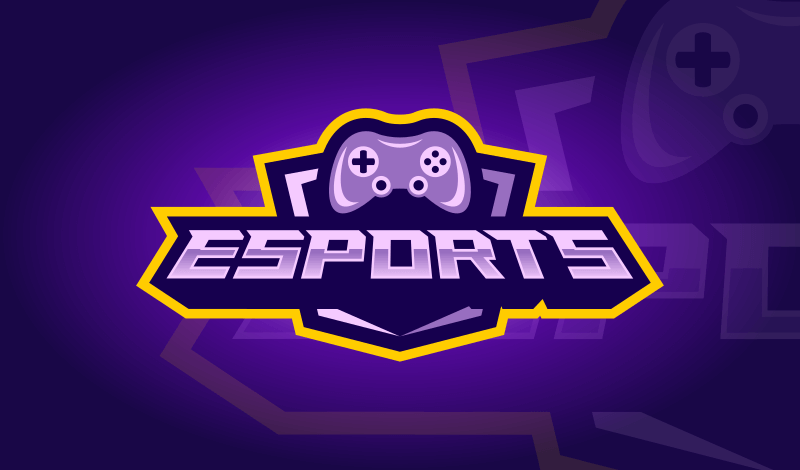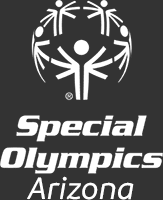
Special Olympics Adds Esports to Unified Programming
Esports shows potential is there for an even greater impact on social inclusion
The 2020-21 academic year has tested the agility, creativity and determination of every individual involved in interscholastic programming. While classrooms turned virtual, school activity programs were delayed, paused or outright canceled. Special Olympics Unified Sports® were not immune. Unified teams pairing students with and without intellectual disabilities were sidelined in many states as well.
“With Special Olympics Arizona (SOAZ), in general, we had to cancel all of our in-person events,” said Katie DeVenuto, Arizona Interscholastic Association (AIA) Unified Sports Coordinator. “Starting last March, we haven’t had any in-person events.”
On the other side of the country, Special Olympics Connecticut (SOCT) and the Connecticut Interscholastic Athletic Conference (CIAC) have suffered a similar fate.
“We were just starting our basketball season, which is our biggest sport in participation and enthusiasm,” said Robert Hale, CIAC Director of Unified Sports. “The kids love basketball, more than anything, in terms of Unified Sports. We just had three of our tournaments and all of the sudden we’re calling a halt to it.”
The biggest concern for Special Olympics State Programs was the welfare of their athletes. The social isolation that the pandemic has caused can have an even greater impact on students who have limited access to outside engagement.
“They’re alone if they don’t have any other connection points.” DeVenuto said. “Most of their friends are through Special Olympics, or through their group home or through their school. And so, when they’re not in school, when they’re not in their group homes or when they’re not engaging with Special Olympics, they are alone.”
With the mission of Unified Sports – promoting social inclusion through sport – in jeopardy for the year and a rising concern regarding the mental and emotional health of Unified athletes, Special Olympics North America (SONA) and PlayVS teamed up to enter the virtual world of interscholastic esports.
“We knew Unified esports was going to happen eventually, but we really try to take the cue from the Special Olympics Unified Champion Schools® within our State Programs as to where we take our programming,” said Brian Quinn, Senior Manager of Special Olympics Unified Champion Schools. “With Unified Sports being sidelined in most places due to the pandemic, many viewed esports as a next best option to continue engaging students and getting some type of competition experience.”
As a solution to combat both a lack of opportunities for social inclusion and competitive engagement, the planning for the first-ever Special Olympics Unified esports beta test league began.
“When we approached the NFHS Network and PlayVS about this concept, they welcomed us with open arms,” Quinn said. “Play- VS has been wonderful in providing us with the platform, support and expertise to deliver our successful beta test leagues this school year.”
Conversations with the NFHS, NFHS Network and PlayVS began in May of 2020, and by September of 2020, school beta test sites were confirmed, coaches identified and student recruitment underway. The fall Special Olympics Unified esports beta test league consisted of 10 schools from five states (Arizona, Connecticut, Colorado, Southern California and Virginia). By the spring, four more states were added (Illinois, Indiana, New York and Texas) – all with varying levels of experience with esports.
“We actually had an esports tournament back in May 2020 and we were using Discord, which is really popular app in the gaming community for all communications leading up to the tournament and during play,” DeVenuto said. “Athletes and partners could talk with each other in the app and I would monitor the chat.”
During this SOAZ esports tournament, an athlete from the far western part of the state and an athlete from the southern part of the state utilized Discord to connect and chat during an after-hours gaming session – recorded the competition and sent the link to the group.
“You could hear them, as you’re watching this video, strategizing with each other, encouraging each other working as a team and they’ve never met before – never met in person, and even if we had in-person events, they still probably would have never met because they live in such different parts of the state,” DeVenuto said. “So, esports for us has really been an opportunity for us to keep athletes and partners engaged in some form or fashion.”
Similarly, the CIAC/SOCT have seen esports grow within their schools as varsity level teams through CIAC competition. The added opportunity for Unified teams to compete was an obvious next step in their inclusive programming.
“It made sense for programs wanting to stay active to have this as an opportunity and that’s a good entree for it to continue down the road, perhaps,” Hale said. “We have in Connecticut, I think about 40 schools that have some kind of an esports team.”
Hale was able to get four schools to join in and Connecticut soon became home to the eventual champions of the inaugural fall Special Olympics Unified esports beta test league.
As with any new endeavor there are certainly unforeseen and even completely obvious obstacles to navigate. The Special Olympics State Programs knew that technology and logistics were going to be the first and largest of those obstacles to address.
“In Arizona, there have been times where we’ve been the number one hot spot for COVID cases and so a lot of our schools were off campus, or some of the students in a special education department were on campus but the partners were off campus. So, the challenge was – How do we actually create an esports team at this particular school when they will be competing in different areas and will this work,” DeVenuto said. “The equipment piece was also challenging because of that same reason. And some schools also don’t have computers that can power some of this stuff. They have really old equipment.”
Meeting bi-weekly, the Special Olympics State Programs continue to talk through technology, education, recruitment and scheduling – sharing experiences and working through the bumps they encounter along the way.
“We have been working with nine states for this beta test season and I must say how incredible our State Programs have been,” Quinn said. “They are thrilled to be able to bring this opportunity to their schools and students. Nothing is perfect the first time around and there has been a learning curve with esports, but we’re in it together and really making some exciting progress.”
Esports is not going to disappear from the Special Olympics Unified Sports® programming repertoire anytime soon. This may have started as a bandage to get Unified programming through a year of sidelined in-person sports competition, but it will not be discarded as Unified Sports heals and returns to schools across the country. In fact, the potential is there for an even greater impact on social inclusion.
“I am confident in saying that Unified esports is here to stay!” Quinn said. “We envision esports being a way to attract a new set of students that may not be immediately drawn to school sports. We are also very excited about the inclusive nature of esports. Not only does it allow students with a wide range of abilities to participate, there’s also a huge opportunity to challenge stereotypes and assumptions about people with disabilities.”
During a year that has challenged us in numerous ways, Special Olympics Unified esports has served as an immediate solution to a specific problem with the potential for a much greater social impact.



